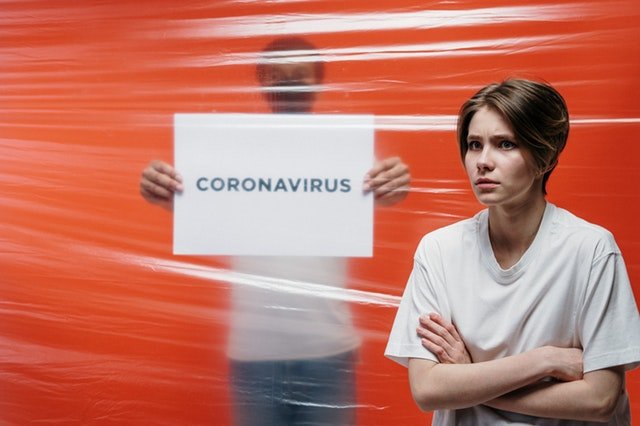
Since the outbreak of COVID-19, rumors and misinformation about the virus seem to be spreading just as quickly, if not more quickly, than the virus itself.
In the midst of a pandemic, false information can be dangerous and lead to panic, making it difficult to differentiate between fact and fiction.
Experts with The University of Texas Health Science Center at Houston (UTHealth) weigh in on the most common myths about COVID-19:
MYTH: Vitamin C can help fight against the virus
Vitamin C is an essential vitamin that can help boost the immune system and is found in many fruits and vegetables.
However, research shows that for most people, taking vitamin C won’t even fight against the common cold.
“Studies show that vitamin C has no significant benefit in preventing or treating the common cold for most patients, and COVID-19 is not the common cold,” said Joyce Samuel, MD, an associate professor of pediatrics at McGovern Medical School at UTHealth and a pediatric nephrologist with UT Physicians.
Susan Wootton, MD, associate professor of pediatrics at McGovern Medical School and an infectious disease pediatrician with UT Physicians, adds that there is no current data to support that extra vitamin C will fight against COVID-19.
“In fact, our body can only absorb a certain amount of vitamin C at a time and any excess will be excreted. So those who are stocking up on the vitamin are not benefiting from the extra intake,” said Wootton.
MYTH: The virus will die off once temperatures rises
It is unknown whether COVID-19, the illness caused by the novel coronavirus, will follow the flu season and disappear during warmer months.
Although it can present similar respiratory problems, COVID-19 is different from the virus strains that cause the flu.
“Because this is a new virus, we aren’t sure,” said Catherine Troisi, PhD, epidemiologist and associate professor in the Department of Management, Policy, and Community Health with UTHealth School of Public Health.
“We hope that warmer weather will help, but there is no guarantee. What ultimately helps is that summertime means kids are not in school anymore, and they are less likely to pass viruses around.”
MYTH: Drinking water every 15 minutes reduces your risk of contracting the virus
Another rumor suggests that drinking water every 15 minutes will help flush the virus through the body.
Although drinking water can help with dehydration, no evidence shows it will protect against contracting COVID-19. Wootton, said there is no data to support this claim.
“However, it is very important to stay both hydrated and well rested when recovering from any infection,” she added.
Gargling warm water won’t help either, warned Luis Ostrosky, MD, professor of internal medicine at McGovern Medical School and an infectious disease specialist with UT Physicians.
MYTH: Masks protect against COVID-19
Face masks are only being recommended for health care workers who may be treating patients infected with COVID-19, or patients who are ill.
“Those who are not ill or on the frontlines of medicine may not benefit from wearing a mask,” said Michael Chang, MD, assistant professor of pediatrics at McGovern Medical School, and an infectious disease specialist with UT Physicians, who is affiliated with Children’s Memorial Hermann Hospital.
“Wearing a mask when you are not sick essentially gives you a false sense of confidence that you don’t need to wash your hands as often, or not touch your face as much.
And, because masks can be uncomfortable, you may actually touch your face more. In addition, contamination can occur when masks are taken off and put back on,” he said.
Just keep it simple and leave the face masks for the health care workers or sick people who truly need them.
MYTH: COVID-19 can mutate into a deadlier strain
All viruses mutate over time, and COVID-19 is no different. However, that does not mean the virus is becoming deadlier.
According to Chang, virus mutations are not bad; in fact, they typically make a virus less deadly.
“Viruses mutate pretty frequently, but not all mutations have to be bad. Many mutations in viruses are silent, and some can even lead to a strain that is less fit with less virulence.
In fact, many of our live-virus vaccines are essentially mutated wild-type strains,” he said. “Given all of the above, it is very unlikely for COVID-19 to develop a mutation that makes it deadlier.”
MYTH: Using hot water to wash your hands will get germs off better than cold water
Frequent handwashing is said to be one of the best ways to limit the spread of COVID-19.
According to the Centers for Disease Control and Prevention (CDC), many diseases and conditions are spread by not washing hands with soap and clean, running water.
As simple as it sounds, soap and water are the best approach to preventing the further spread of germs, and the temperature of the water when washing does not matter.
In fact, Chang said, “when washing hands with soap and water, it’s really the mechanical scrubbing action that’s cleaning your hands.
You can use warm or cold water. You have to be sure you wash/scrub long enough (at least 20 seconds) and completely dry your hands.”
Stay informed by following updates on the UTHealth COVID-19 resources page, Harris County Public Health, Texas Department of State Health Services, CDC, and World Health Organization.



